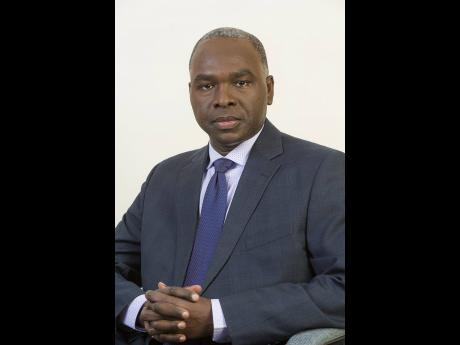Price falloff sparks BOJ kudos, lowers inflation outlook
The jury is still out on what monetary policy cue the central bank will take from the macroeconomic numbers for September released by the Statistical Institute of Jamaica, Statin, this week. For now, the Bank of Jamaica, BOJ, is pleased with what...
The jury is still out on what monetary policy cue the central bank will take from the macroeconomic numbers for September released by the Statistical Institute of Jamaica, Statin, this week.
For now, the Bank of Jamaica, BOJ, is pleased with what it says is the expected tapering of headline inflation in response to global dynamics and local monetary policy signals, but it remains concerned about still-high core inflation, which reflects price movements stripped of the usually heavy influence of energy and food.
The government’s statistics agency on Tuesday reported a lowering of headline inflation to single digit – 9.3 per cent – the lowest level all year, despite a significant jump in price increases in the month of September, compared to the preceding several months.
At the same time, Statin reported 4.8 per growth in the economy during the April to June quarter, which represented a slowing down of the economy, given the previous quarter’s 6.5 per cent economic expansion and the 14.2 per cent output growth recorded in the second quarter last year.
In a preliminary response to a Financial Gleaner request for comment on the inflation out-turn, Deputy Governor Robert Stennett indicated that the central bank was upbeat but cautious.
“This number is broadly consistent with what we had anticipated. It is extremely welcomed, and we hope that it is a step towards having inflation return very decisively in 2023 to even lower single digits. The BOJ is very heartened by the number, and we expect that inflation will continue to evolve as we anticipated,” the BOJ official told the Financial Gleaner in an interview on Thursday.
He reiterated Statin’s explanation that the inflation number is largely reflective of increases in raw food prices as a result of adverse conditions – a temporary factor that the BOJ expects to normalise in the months to come, barring any unforeseen eventuality.
But with core inflation still running at 8.9 per cent, Stennett said the central bank remained concerned about underlying inflationary pressures.
“Core inflation remains relatively high. Even while the Consumer Price Index moderates, we continue to watch underlying inflation, which is a signal of the pass-through of past price shocks to domestic prices,” said Stennett, who heads the Research and Economic Programming Division at the BOJ and also has responsibility for financial stability.
The growth number, for the central banker, is a positive indicator of the buoyancy of economic activity. It no doubt comes as some vindication so far, too, of the central bank’s hawkish monetary policy stance over the past year, which, it was widely predicted and accepted by the BOJ, would have a negative effect on economic growth.
The BOJ has been ratcheting up its policy interest rate and slammed the brakes on its strategy of quantitative easing, or the buying up of securities to flood the market with stimulus cash. In fact, instead, it has recalibrated its market interventions to squeeze the market of local currency and sell increasingly large amounts of foreign exchange in a bid to keep the Jamaican dollar stable.
“Growth is a little stronger than what we had anticipated, which is good news. Even though it represents a moderation, it is consistent with what the central bank had said, and continues to reflect stronger-than-anticipated visitor arrivals. And it may, to some extent, be reflecting the impact of remittances on the Jamaican economy,” according to the BOJ deputy governor.
He explained that remittances are used to fuel consumption spending and to the extent that remittances remained high, some of the fairly buoyant growth may be related to Jamaicans having more money to spend from this source.
Strong growth trajectory
Meanwhile, the analysis by Richard Pandohie, co-chair of the Economic Policy Committee of the Private Sector Organisation of Jamaica, PSOJ, is largely in keeping with the central bank’s take.
The business leader is not surprised by the inflation dial back and what he says is still a strong growth trajectory. With some moderation in global commodity prices, which he said is largely driving local inflation, he is urging his fellow business leaders to pass on the price reductions to consumers.
“I have been saying that inflation should be trending down. When you look at components like fuel and commodity prices globally, we haven’t necessarily started seeing the full effects in Jamaica yet,” said Pandohie, who is also CEO of Seprod Group.
“From the end of this month onwards, we should be seeing certain key commodity items coming down. In fact, from where I sit at Seprod, we have had a reduction in the price of (cooking) oil and flour. We took counter flour down five per cent, effective Tuesday, and two weeks ago (cooking) oil went down five per cent, following a two per cent reduction the previous month. So, as our replacement stock comes in, we are going to pass on the reduced price,” Pandohie said.
With shipping costs from Asia also on the decline, despite some difficulty accessing food-grade containers, the Seprod CEO is expecting inflation to continue its downward trend since it peaked in April at 11.8 per cent.
“It is good to see the growth element. I have said consistently that I don’t think we face a recession risk in Jamaica. I think our recession risk lies with what happens in the United States and the impact that will have on remittances to the economy,” the businessman said.
He is heaping kudos on the central bank for its foreign currency management in the face of rampant global and local inflation, while painting the BOJ’s interest rate stance as somewhat of a necessary evil in the volatile inflation situation.
“For the BOJ and interest rate hikes, it’s pretty much damned if you do and damned if you don’t. I think the interest rate movements have more to do with managing capital flight and pressure on the Jamaican dollar. I think the BOJ has done a phenomenal job in managing the exchange rate, which has taken off some of the inflationary pressure. Nobody talks about that. We cuss about it when the volatility is extreme, and I think we should give credit where credit is due,” Pandohie told the Financial Gleaner in an interview on Thursday.
“I am hoping that there will be some moderation with interest rate hikes and that it will hold where it is, because it is a real cost to business. But it all depends on what happens globally,” he added.
The Bank of Jamaica last raised interest rate to 6.5 per cent in September. It will make its next pronouncement on November 18, three days after the next monthly Statin report on inflation is scheduled for release.


